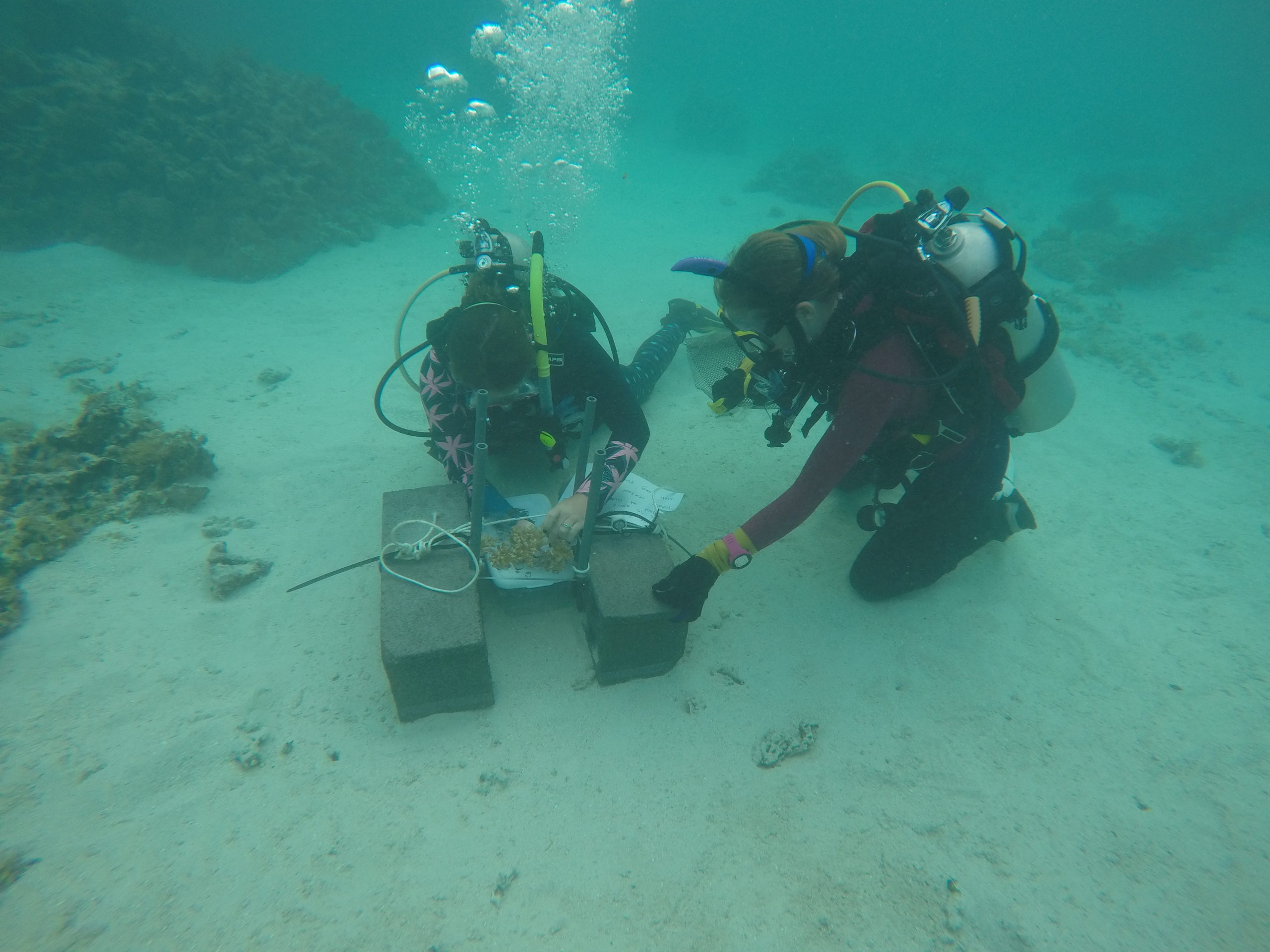Nutrients and sediment that wash into the ocean from agricultural lands and lawns may impact the stress tolerances of reef-building corals and their algal symbionts, according to a new study in the Journal of Experimental Biology from CSUN Marine Biology Master’s student Danielle Becker and her thesis advisor, Assistant Professor Nyssa Silbiger.
To examine how runoff impacted reefs, Becker and Silbiger collected colonies of the coral Pocillopora acuta from reefs offshore of Mo’orea, French Polynesia, at sites receiving different levels of nutrient and sediment runoff. They took multiple measures of the corals’ metabolic activity under controlled conditions, and examined the nutrient content of samples from the corals’ tissue and extracted cells of their symbiotic algae.
Corals from the sites that had received more nutrient runoff differed from those from low-runoff in ways suggesting that the increased nutrient input had altered the composition of their symbiont communities — they had greater chlorophyll content, higher symbiont cell density, and differing distributions of nitrogen within the symbiont samples. However coral tissue samples did not show significant differences associated with higher runoff input, and corals from the high-runoff sites had poorer metabolic responses to heat stress.
Perhaps not surprisingly, the higher-runoff sites also had reduced density of Pocillopora acuta colonies, consistent with the possibility that the nutrient inputs compromised the corals’ survival in those areas. Becker and Silbiger conclude that their data show a way in which relatively local-scale consequences of human activity — the nutrient-rich runoff — could exacerbate the effects of global environmental issues like rising ocean temperatures caused by carbon dioxide pollution.
The full paper is available online ahead of print in the Journal of Experimental Biology.
Image: Danielle Becker (L) and Nyssa Silbiger examine a coral formation at their field site off Mo’orea (via Nyssa Silbiger)

